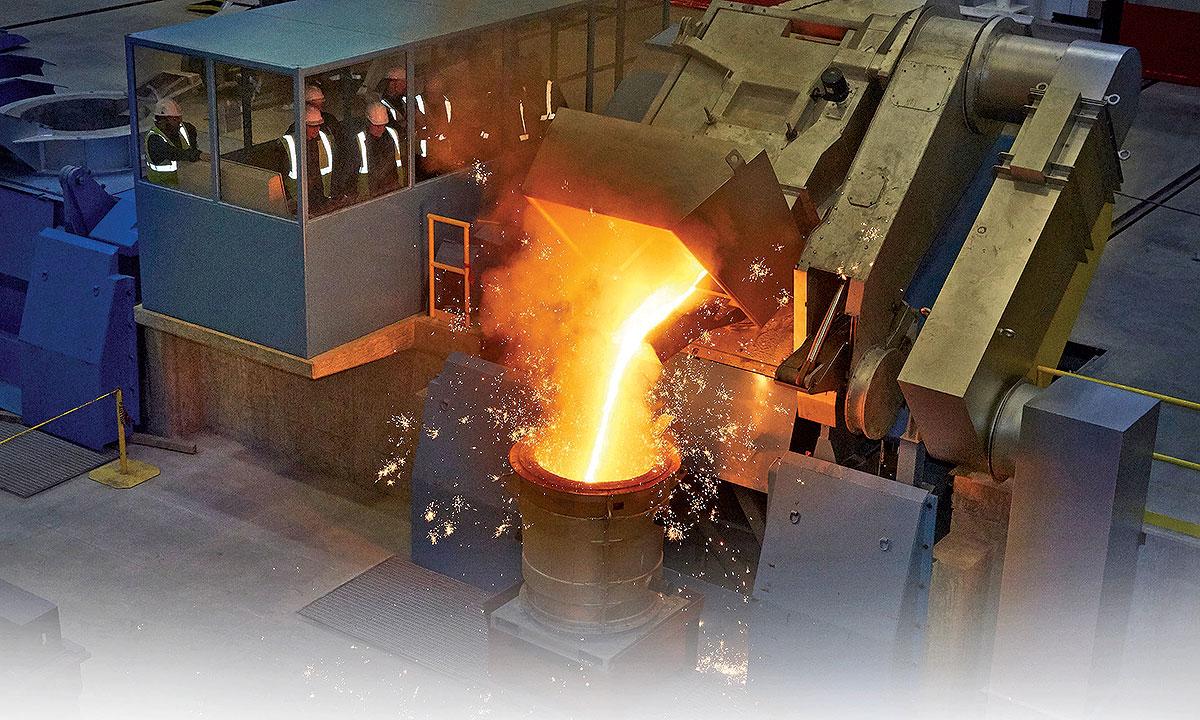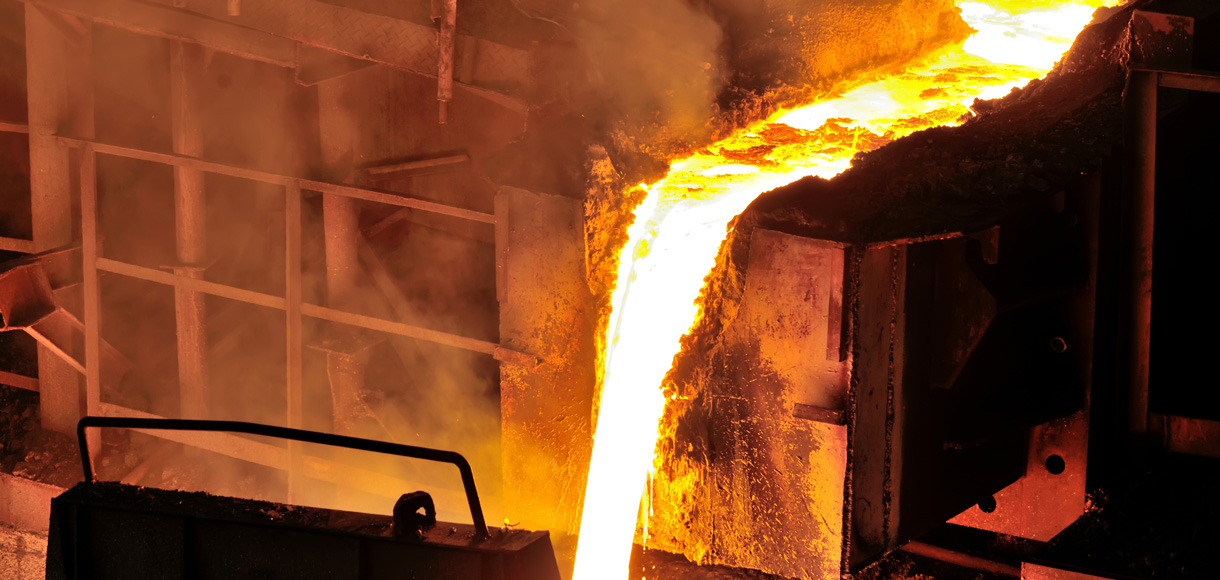Exactly How a Metal Foundry Adds To Sustainable Metal Production Practices
Metal foundries play an essential duty in promoting sustainability within the metal manufacturing industry. By integrating recycled products, they decrease dependence on virgin resources and lessen environmental effects. Energy-efficient melting procedures further lessen energy usage and discharges. The journey towards lasting techniques includes even more than just recycling and energy management. It encompasses a broader dedication to honest sourcing and ingenious technologies. The implications of these practices are significant and warrant better evaluation.
The Role of Recycling in Metal Foundries
While metal production has actually generally counted on virgin products, the increasing focus on sustainability has resulted in a substantial shift in techniques, especially in metal foundries. Recycling has actually become a crucial part of this improvement, enabling foundries to repurpose scrap metal and minimize dependence on mined resources. By integrating recycled products into their processes, foundries not only lower ecological effect yet likewise lower manufacturing prices.
Using recycled metals, such as light weight aluminum, steel, and copper, decreases power usage and decreases greenhouse gas discharges associated with conventional mining and refining approaches. Additionally, foundries can accomplish top notch outcomes by employing advanced sorting and handling innovations to guarantee the purity of recycled materials. This focus on recycling fosters a circular economic climate, where waste is lessened, and sources are made use of successfully. Metal foundries play an essential duty in advertising sustainable methods within the metal manufacturing sector.
Energy-Efficient Melting Methods
Energy-efficient melting techniques are vital for boosting sustainability in metal production. These methods substantially reduce energy consumption during the melting process, which is just one of one of the most energy-intensive stages in metal manufacturing. Technologies such as induction melting, resistance home heating, and microwave melting deal enhanced efficiency compared to traditional methods. Induction melting, for example, uses magnetic fields to create warmth directly within the metal, lessening power loss and supplying specific temperature control.
In addition, carrying out warm recuperation systems can additionally enhance efficiency by reusing and recording waste warm produced during melting. Employing innovative insulation materials and optimizing furnace styles additionally add to energy financial savings. By embracing these innovative melting strategies, metal foundries can reduce their carbon impact, decrease operational prices, and add to an extra lasting production landscape. The combination of energy-efficient techniques not just lines up with environmental goals yet likewise meets the growing demand for accountable production methods in the metal industry.
Lasting Sourcing of Raw Products
Lasting sourcing of resources is necessary for decreasing the ecological effect of metal manufacturing. This entails the raised use of recycled steels, the fostering of honest mining techniques, and efforts targeted at local sourcing. By focusing on these approaches, the sector can promote accountable resource management and assistance local economic climates.

Recycled Metal Utilization
Just how can sectors successfully reduce their environmental influence while fulfilling the growing need for metal? One substantial strategy is the use of recycled metal. By including scrap metal into their manufacturing procedures, foundries can reduce the extraction of virgin materials, therefore conserving all-natural resources and lowering power consumption. Recycled steels need much less energy to procedure compared to their raw counterparts, leading to reduced greenhouse gas emissions. In addition, making use of recycled metal aids draw away waste from garbage dumps, promoting a round economy. Industries that focus on recycled metal not only add to sustainability but likewise take advantage of price savings connected with lowered product procurement. Recycled metal usage stands as an important technique for eco responsible metal manufacturing.
Honest Mining Practices
While the need for metals proceeds to rise, markets are increasingly acknowledging the relevance of moral mining techniques in guaranteeing liable sourcing of basic materials. Moral mining incorporates a commitment to ecological stewardship, social responsibility, and adherence to fair labor techniques. Firms are currently prioritizing collaborations with mines that demonstrate openness in their operations, minimizing environmental impact and valuing neighborhood communities. This technique not only cultivates a lasting supply chain but also improves the online reputation of companies included. By implementing extensive standards and accreditations, industries can deal with illegal mining tasks and advertise the well-being of workers. Eventually, ethical mining methods add significantly to an extra sustainable metal manufacturing ecosystem, straightening economic growth with social and ecological integrity.
Local Sourcing Campaigns

Advancements in Metal Casting Processes
Innovations in metal casting processes are transforming the sector by including sophisticated recycling strategies that reduce waste. Energy-efficient melting methods are also being developed to decrease energy intake throughout production. In addition, the usage of cutting-edge mold and mildew materials adds to improved performance and sustainability in casting procedures.
Advanced Recycling Techniques
Advanced recycling strategies are transforming metal casting processes, considerably enhancing sustainability in the industry. These innovations concentrate on reclaiming and reprocessing scrap metal, considerably decreasing waste and the demand for virgin products. Strategies such as hydrometallurgy and pyrometallurgy make it possible for foundries to extract useful metals from made use of elements, making certain effective resource utilization. Furthermore, advanced sorting and filtration innovations improve the top quality of recycled steels, making them suitable for high-performance applications. This not just lessens the ecological impact of metal production however additionally fosters a circular economic situation by advertising the reuse of products. As these reusing techniques remain to advance, they assure to additionally enhance procedures within foundries and add to a much more sustainable metal manufacturing landscape.
Energy-Efficient Melting Techniques
While standard melting methods have actually long been the foundation of metal casting, recent developments have introduced energy-efficient strategies that substantially lower power usage and discharges. Technologies such as induction melting and electrical arc heaters have gotten prestige, enabling precise control over temperature level and decreasing the need for fossil fuels. These approaches not only pop over to these guys improve energy efficiency but likewise advertise much faster melting times, which equates to lower operational prices. Additionally, technologies in warm recuperation systems make it possible for foundries to capture and reuse excess warmth created during the melting process. This alternative approach to power management not only supports lasting techniques however additionally settings metal foundries as leaders in the shift in the direction of greener manufacturing processes, better straightening with international sustainability objectives.
Ingenious Mold Products
As the demand for more sustainable and reliable metal casting procedures expands, the expedition of innovative mold and mildew materials has actually ended up being a focal factor in the sector. Conventional mold materials frequently add to ecological difficulties, prompting the look for options that lower waste and energy intake. Recent developments consist of blog the growth of recyclable compounds and biodegradable binders, which not just enhance mold and mildew performance however likewise minimize eco-friendly influence. Furthermore, making use of 3D printing modern technology in mold and mildew creation enables intricate designs that reduce product usage and make it possible for fast prototyping. These ingenious products not only enhance casting precision but likewise line up with sustainability goals, showcasing the sector's dedication to reducing its carbon impact while preserving top notch manufacturing standards.
Reducing Waste Through Advanced Technology
Cutting-edge modern technologies are transforming the metal manufacturing market by substantially decreasing waste and boosting performance. Advanced data analytics and device learning algorithms allow foundries to optimize production processes, lessening and recognizing ineffectiveness scrap product. Smart sensing units keep an eye on tools efficiency in real-time, permitting anticipating maintenance that reduces downtime and waste generation. In addition, additive manufacturing strategies, such as 3D printing, enable for the development of complicated components with very little material usage, considerably reducing waste compared to traditional methods.
Additionally, closed-loop systems are becoming more widespread, where scrap metal and results are reused back right into the production cycle, making sure that materials are used to their greatest capacity - Aluminum Casting. This assimilation of innovation not only promotes source preservation however additionally boosts the general sustainability of metal manufacturing practices. By accepting these innovations, foundries can add to a more sustainable future while preserving competition on the market
The Impact of Foundries on Carbon Impact Decrease
Foundries play an essential duty in minimizing the carbon impact of the metal manufacturing industry by implementing various sustainable methods. By using energy-efficient technologies, such as electrical arc furnaces, these centers considerably lower greenhouse gas emissions contrasted to standard techniques. In addition, foundries significantly adopt renewable resource resources, which likewise decreases their dependence on fossil fuels.
Reusing scrap metal is an additional crucial practice that foundries use, saving resources and reducing the need for virgin materials. This not just decreases waste but also reduces the energy-intensive extraction processes connected with mining. The adoption of closed-loop water systems aids to decrease water use and minimize wastewater discharge, adding to a more sustainable procedure.
Via these efforts, foundries show their dedication to ecological stewardship, resulting in a significant reduction in the general carbon impact of the metal production sector. Their recurring initiatives are essential in the change toward a much more sustainable commercial landscape.
Regularly Asked Concerns
What Sorts of Metals Are Most Typically Recycled in Foundries?
Light weight aluminum, steel, brass, and copper are amongst one of the most generally recycled why not try these out steels in foundries. These metals are favored because of their high recycling prices, economic worth, and prevalent accessibility, contributing greatly to commercial sustainability efforts.
Just How Do Foundries Make Sure the High Quality of Recycled Materials?
Foundries determine the high quality of recycled materials via strenuous screening, sorting, and purification processes. They execute innovative innovations to assess structure and remove impurities, guaranteeing that the recycled metals meet market standards for efficiency and safety and security.
What Certifications Exist for Lasting Foundry Practices?
Various qualifications exist for lasting foundry techniques, consisting of ISO 14001 for ecological administration, ISO 50001 for energy monitoring, and LEED qualification for lasting building methods (Aluminum Foundry). These qualifications help guarantee adherence to environmental and sustainability criteria in procedures
Just How Do Foundries Determine Their Carbon Footprint Reduction?
Foundries gauge carbon impact reduction through tools like lifecycle evaluations, energy audits, and exhausts tracking systems. They contrast baseline emissions to present outputs, examining enhancements in energy effectiveness, material usage, and renewable resource adoption with time.
What Are the Financial Advantages of Lasting Metal Manufacturing?
Lasting metal manufacturing provides economic benefits such as decreased functional costs, enhanced performance, enhanced market competition, and potential government incentives. Furthermore, it promotes advancement and draws in environmentally aware consumers, inevitably driving long-lasting earnings for companies.
Metal foundries play a vital duty in advertising sustainability within the metal manufacturing industry. While metal production has actually typically relied on virgin materials, the increasing focus on sustainability has led to a considerable change in methods, particularly in metal foundries. By including scrap metal into their production procedures, foundries can lower the extraction of virgin products, thereby reducing and saving all-natural resources power consumption. Foundries play a vital duty in reducing the carbon footprint of the metal manufacturing industry by executing numerous lasting methods. Reusing scrap metal is one more important method that foundries employ, conserving resources and reducing the requirement for virgin materials.